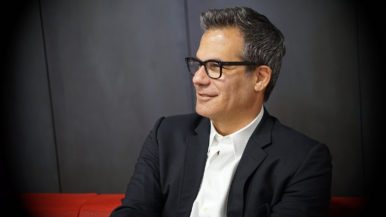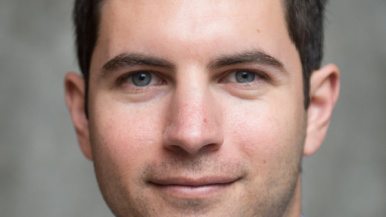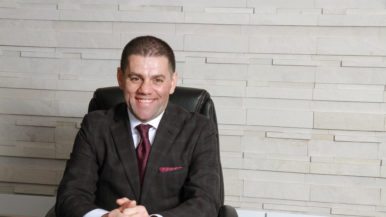Q&A: Michelle Murphy, the U of T professor who’s racing to preserve climate-change data before Donald Trump takes office

Like many intellectuals around the world, Michelle Murphy, a University of Toronto professor of history and gender studies, was unnerved when Donald Trump won the election. While others made placards and took to the streets in protest, Murphy teamed up with a group of academics and researchers to safeguard precious government data from Trump or his deputies, in case they decide to suppress it for ideological reasons. Of particular concern to Murphy and her group is data related to climate change, which Trump and his transition team appear to believe is part of an elaborate hoax.
This Saturday, Murphy and a group of her U of T colleagues will be hosting a “Guerilla Archiving” event, where volunteers will trawl government websites in an attempt to find environmental data before the new president does. We spoke with her about the goals of the event, its logistics, and the future of science under Trump.
You’re planning to archive government information related to environmental and climate science. Why do you think it’s at risk?
There are plenty of signals that data of that kind isn’t safe. Trump’s pick for the head of the Environmental Protection Agency, Scott Pruitt, was attorney general of Oklahoma. There were many court cases where he tried to resist applying EPA rules and regulations. The first person nominated to the transition team was Myron Ebell, who is one of the most famous climate change deniers. He’s involved in many think tanks that are trying to cast doubt on scientific evidence about environmental issues. The transition team, in their public statements, have made clear what their plans are in terms of what programs they want to see go. We’re particularly concerned about data sets associated with programs related to the Clean Water Act, climate change, environmental justice, fuel economy, particulate pollution and so on.
Tell me a little about Saturday’s event. What are you hoping to accomplish?
The event is part of something called the Environmental Data and Governance Initiative. It’s a large project with a big network with many institutions involved. And we’re working in concert with the Internet Archive, which has an end-of-term project to copy all the government websites for each outgoing presidential administration. We want to prioritize copying climate-related websites more quickly, hopefully before January, before they get changed.
So there will be similar events taking place elsewhere?
Yes. We’re the first in what will be a whole series of events, mostly happening in the United States, in Philadelphia and New York and other places that have reached out. We’re working to preserve both government websites and government data related to environment and climate change.
Who gets an invite to Saturday’s event?
We need researchers, librarians and archivists. We need people who have skills with data sets and technical people who know how to work with databases. After we gather in the morning, we’ll break up into different stations. Some of our stations will be tech stations, where people will be working on some of the technical questions about how to get to access to the more difficult databases. And then we’ll have another station that is mostly about researching the priorities of the transition team that Trump has nominated and which programs they’re likely to cut.
There’s a ton of government data out there, and you’re a relatively small group. What’s the process for getting this information archived?
One group will be feeding websites to the Internet Archive’s web crawler. We’ll also work with the Penn Data Refuge project, out of the University of Pennsylvania, so we can download data sets or scrape them from the web, then transmit them to a server repository. There are lots of data sets that the Internet Archive can’t store because they require a login or a manual search, so those will be nominated for preservation in the Data Refuge server network. We have to triage requests, and prioritize the most vulnerable and valuable data sets.
Putting this together is a big logistical challenge on every level. We have a big network of people that we’re working with. And so another one of our goals for this Saturday is to build toolkits so that other communities can hold similar events.
You’re an informal network of activists and academics working against a huge, potentially hostile government. Is it realistic to think that a group like that will be able to archive this information quickly enough to make a difference?
I wouldn’t say that we’re a network of activists and academics. I would say we’re a network of librarians, archivists, environmental specialists, lawyers and tech people. We have a lot of skill and expertise in our network. Are we going to be fully successful? Probably not. We need to rely on the expertise of people who work in various kinds of geoscience to help us identify the vulnerable data sets. We need to crowdsource all that expertise if we’re going to have a good chance of preserving these data sets.
You can preserve information that already exists, but is there a chance that a Trump administration will discontinue the collection of new data?
We saw that kind of thing happen in Canada under the Harper administration. If programs aren’t cancelled, I expect to see them starved of budget, of personnel, of resources. You can stop data collection that way. I expect data sets might be pulled back out of public access and be harder to get. Like we saw under Harper, you might do a freedom of information request and it could take years and years before you get the information, and then it’s redacted. I think we’re going to be seeing a lot of investment into nonprofit organizations and universities, who are going to be forced to do the monitoring work that the state isn’t.
You’ve been getting deluged with interview requests related to this event. How many reporters have you spoken to in the past couple days?
Maybe 15. We’ve spoken to NPR, Time, the BBC, the Washington Post, ABC News. I can’t remember them all.
How do you explain the large amount of media interest?
People are paying attention to the appointments that Trump is making to his cabinet and realizing that this is an administration that is explicitly disinvesting from climate change mitigation practices and from environmental regulations. The consequences of this are going to be not just in the United States. They’re going to be planetary. People realize that this is a moment that you have to care about.





